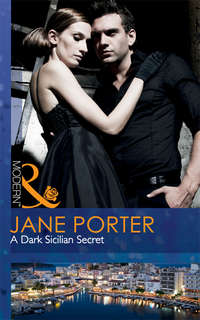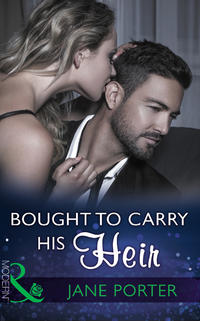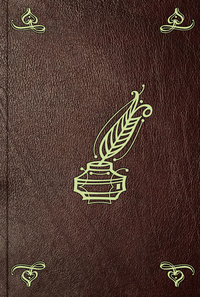
Полная версия
The Prince's Scandalous Wedding Vow
“I’m not hungry. I just want something for the pain.”
“I have tablets that should help with the headache, but I think you should eat first. Otherwise I’m worried it’ll upset your stomach.”
He looked at her as if he didn’t understand, or perhaps he didn’t believe her, because his blue eyes were narrowing and his mouth firmed, emphasizing his strong jaw, now shadowed with a dark stubble.
He’d been striking from afar, but up close he was absolutely devastating, his black hair and brows such a contrast to his startlingly blue eyes. His features were mature and chiseled. Faint creases fanned from his eyes.
As his gaze met hers and held, her pulse jumped. “It’s been almost a full day since I pulled you out of the sea—”
“How?” he interrupted.
“How?” she repeated.
“How did I get here?”
“Your boat. Your yacht—”
“I don’t understand this yacht.” The wrinkles in his forehead deepened. He struggled into a sitting position, wincing and cursing under his breath. His hand lifted to his temple, where the wound was beginning to bleed again. “When was I on one?”
“The past few days. Probably the past week or more.” She sat back on her haunches, studying him. “Do you not remember?”
He shook his head.
“What do you remember?”
He thought for a moment, and then his broad, sun-bronzed shoulders shifted irritably, impatiently. “Nothing.” His voice was hard, his diction crisp. Authority and tension crackled around him.
Her jaw dropped ever so slightly. “You don’t remember who you are? Your name? Your age?”
“No. But I do know I need to find a bathroom. Can you show me the way?”
* * *
He had questions for her later, many questions, and Josephine fought to hide her anxiety over his complete loss of memory. She prepared them a simple dinner, talking to him as she plated the grilled vegetables and lemon-garlic chicken. “I think you must be Italian,” she said, carrying the plates to the small rustic table in the center of the room. The table divided the room, creating the illusion of two spaces, the sitting area and then the kitchen. “It was the first language you responded to.”
“I don’t feel Italian.” He grimaced. “Although I’m not sure what that even means. Can a person feel their nationality?”
“I don’t know,” she answered, sitting down across from him. “But I suppose if I woke up somewhere else I’d be puzzled by the different cultural norms.”
“Tell me about the people I was with.”
“They were all about your age. Although some of the girls seemed younger. They all looked...polished. Affluent.” She hesitated. “Privileged.”
He said nothing.
“Everyone seemed to be having a good time,” she added. “Except for you.”
He glanced at her swiftly, gaze narrowing.
“I don’t know if you were bored, or troubled by something,” she added, “but you tended to be off on your own more than the others. And they gave you your space, which made me think you were perhaps the leader.”
“The leader?” he repeated mockingly. “The leader of what? A band of thieves? Pirates? Schoolboys on holiday?”
“You don’t need to be rude,” she said slowly, starting to rise, wanting to move away, but he reached out and caught her, his fingers circling her narrow wrist, holding her in place.
“Don’t go.”
She looked down to where his hand wrapped her wrist, his skin so very warm against hers. She suppressed a shudder, feeling undone. She was exhausted from watching over him, exhausted from worrying. It had been a long night and day, and now it was night again and she felt stretched to the breaking point. “I’m just trying to help you,” she said quietly, tugging free.
He released her. “I’m sorry.” His deep voice dropped. “Please sit. Stay.”
His words were kind, but his tone was commanding. Clearly he was accustomed to being obeyed.
Her brow furrowed. She didn’t want to create friction, and so she slowly sat back down and picked up her fork, but she felt too fatigued to actually eat.
Silence stretched. She could feel him watching her. His scrutiny wasn’t making things easier, and she knew his eye color now. Blue, light, bright aquamarine blue. Blue like her sea. Reluctantly, she looked up, her stomach in knots. “I thought you were hungry,” she said, aware that he hadn’t yet taken a bite, either.
“I’m waiting for you.”
“I’ve lost my appetite.”
“The company you’re keeping?”
She cracked a small smile. “The company’s fine. I think I’m unusually tired tonight.”
“I suspect you were up all night worrying about me.”
It was true. She hadn’t been sure he’d survive. There were complications for those who’d nearly drowned. “But you made it through, and here you are.”
“Without a memory, or a name.”
“I suppose we should call you something.”
“Perhaps,” he said, but it was clear from his tone that he didn’t agree and wasn’t enthusiastic about being called by a name that was probably not his.
“We could try names out, see if anything resonates.”
He gave her a long, hard look that made her stomach do a funny little flip. “I’ll say names and you tell me if anything feels right,” she pressed on.
“Fine.”
“Matthew. Mark. Luke. John.”
“I’m fairly certain I’m not an apostle.”
Her lips twitched. “You know your Bible stories, then.”
“Yes, but I don’t like this approach. I want my own name, or no name.” He stabbed his fork into his dinner but made no attempt to eat. “Tell me about you,” he said, turning the tables. “Why are you here on what appears to be a deserted island?”
“Well, it’s not deserted—it’s an island that serves a scientific purpose, housing one of the five research stations for the International Volcano Foundation. My father is a professor, a volcanologist. We were supposed to be here for a year but it’s been almost eight.”
“Where is he now?”
“Hawaii.” She saw his expression and added, “He is a professor at the University of Hawaii. He juggles the teaching and the fieldwork. Right now he’s back in Honolulu, lecturing, but he’ll return end of the month, which is now just nine days away.”
“And he has left you alone here?”
She hesitated. “Does it seem strange to you?”
“Yes.”
Her shoulders shifted. “It’s actually normal for me, and I don’t mind. I like the solitude. I’m not much of a people person. And the quiet allows me a chance to do my own work, because when Papa is here, it’s always about him.”
“What about your mother?”
“She died just before I turned five.”
“I’m sorry.”
She shrugged again, uncomfortable with the sympathy. “I don’t remember her.”
“Would she approve of your lifestyle here?”
“She was a volcanologist like my father. They worked together for ten years, doing exactly what he’s doing now, but in Hawaii, so yes, I think she’d approve. Perhaps her only disappointment would be that I haven’t gone off to college or earned all the degrees that she did. I’ve been homeschooled my entire life, even with the university courses. My father says I’m more advanced than even his graduate students, but it’s not the same. I’ve never had to be in the real world or compete with others for work. I just work.”
“What is your field of study?”
“I’m a volcanologist, too, although personally I prefer the point where archaeology intersects with volcanology.”
“Vesuvius?”
She nodded. “Exactly. I’ve been lucky to work with my father on the volcanology of the southwestern sector of Vesuvius, where archaeological and historical data have allowed scientists to map the lava emitted in the last several thousand years. I’m fascinated by not just the lost civilizations, but the power of these volcanoes to reshape the landscape and rewrite the history of man.”
“It doesn’t sound as if you’ve missed anything by being homeschooled.”
She smiled faintly. “I haven’t been properly socialized—my father said as much. I’m not comfortable in cities and crowds. But fortunately, we don’t have that problem here.”
“Your mother was American, too?”
“French-Canadian, from Quebec. That’s how I ended up Josephine.” Her smile faded as she saw how his expression changed, his jaw tightening and lips compressing. “You will remember your name,” she said quietly. “It’s just going to be a matter of time.”
“You spoke to me in French, didn’t you?”
“I tried a number of languages. You responded in Italian, so I’ve stuck with Italian. Est-ce que tu parles français?”
“Oui.”
“And English?” she asked, switching languages again. “Do you understand me?”
He nodded. “I do.”
“How fluent are you?” she asked, continuing in English, testing him. “Is it difficult to follow me?”
“No. It doesn’t seem any different from Italian.”
He had almost no accent, his English was easy, his diction relaxed, making him sound American, not British. She suspected he’d been educated at one point in the United States. “Would you mind speaking English then?”
“No.”
“But should it give you a headache, or if it creates any stress—”
“No need to fuss over me. I’m fine.”
She opened her mouth to protest but thought better of it. He was a man used to having the final word. So who was he? And why did he, even now, ooze power?
“Tell me again about the people I was with on the yacht,” he said. “Tell me everything you know.”
“I will after you eat something.”
“I’m not hungry anymore.”
“That’s strange, because my memory seems to be fading, as well.”
He gave her a hard look. “I’m not amused.”
“Neither am I. You’ve been through a great deal, and we need to get you strong. And as I am your primary caregiver here—”
“I don’t like being coddled.”
“And I’m not known to coddle, so eat, and I’ll tell you everything. Don’t eat, and you can fret by yourself because I have things to do besides argue with you.”
His eyes narrowed and his jaw hardened, making a small muscle in his jaw pop. For a long moment he just looked at her, clearly not happy with the situation, but then he reached for the plate of chicken and took a bite, and then another, and did a pretty impressive job of devouring the rest. He lifted his head at one point and met her gaze. “This is good, by the way. Very good.”
“Thank you.”
“You made this?”
“Yes.”
“Here?”
“Yes.”
“How?”
“I have a freezer, and I use the kiln outside for roasting the potatoes and baking. The rest I prepare on the stove.”
“A kiln?”
“It makes excellent flatbreads, and pizzas, too. I learned how to cook in a kiln when we lived in Peru. That was before here. I loved Peru. My father loved the stratovolcano.” She smiled faintly, remembering his excitement and obsession as Sabancaya roared to life, spewing ash and rumbling the mountain. If it weren’t for the village women, Josephine would have been forgotten. Instead they took her and her father in and helped teach Josephine to cook, and as a thank-you, Josephine would look after the children, giving the hardworking mothers a break.
“Where else have you lived?”
“Washington State, Hawaii, Peru, and Italy, but that was brief, before here. We’ve been here the longest.”
“Was every place this isolated?”
“No, this is definitely the most remote, but I’m truly happy here.”
“Is that why you just watched us on the beach and didn’t come introduce yourself?”
She laughed as she reached for his plate. “I think we come from different worlds. I am quite sure I’d be an oddity in your world.”
His brow creased. “You think so?”
“Absolutely. I wouldn’t know how to drape myself over and around handsome men.” Her lips twitched. “I can’t for the life of me just lie on a beach. I need to be active, and instead of sunbathing I’d be catching fish, and examining the water table, and trying to figure out the volcanic history of the exposed rocks—” she broke off. “Not your kind of girl at all.”
“What is my kind?”
“The kind that looks like a swimsuit model. The kind that doesn’t lift anything, not even her own swim bag. The kind that pouts when you don’t feel like talking.”
“Interesting,” he drawled, blue eyes glinting.
“How so?”
“You didn’t like my friends. You never said that earlier. This is new information.”
“I shouldn’t have said anything. It’s not factual and not important—”
“But revealing about you.”
“Exactly. There is no reason to share my feelings on anything. I should be focused on assisting you. Who I am and what I feel isn’t relevant in any way.”
“You’re allowed to have opinions.”
“I’ll voice them if they’ll be helpful. Me judging your female friends isn’t helpful. It’s just me being petty and unkind and unnecessary.”
“Why do I feel like you are a rare breed?”
“Because I am strange. I don’t fit in. I never have.”
“Sounds a bit defeatist, don’t you think?”
“I would agree with you if I were here licking my wounds. But I’m here by choice, because I’m happy here. I sleep well here. I can breathe here. I don’t feel odd or different, and on Khronos I don’t second-guess myself, and that’s a good thing.”
“You’re saying society makes you uncomfortable.”
“Absolutely.” She carried his plate and fork to the small sink in her very small kitchen and felt his gaze bore into her back as she filled the small plastic dish tub with water to let them soak. “But I’ve been raised outside society so it’s to be expected.”
“Have you ever lived in a city?”
“Honolulu.”
“Is that a proper city?”
She turned and shot him a disapproving look. “Yes. Honolulu has some beautiful architecture and it has a fascinating history. Hawaii isn’t just beaches and surfing.” She didn’t tell him, though, that she didn’t enjoy going back to Oahu anymore because it was too urban for her now. There were far too many cars and people and it had been overwhelming, which was why she’d elected to remain behind on Khronos while her father went to teach.
She turned away from the sink, wiped her hands dry on a dish towel and carried the water carafe to the table. “There were maybe twelve of you that came onto the beach,” she said, taking her seat again. “Seven men, including you, and five women. The yacht was huge. One of the biggest, most luxurious yachts I’ve ever seen. Your group would come onto the beach during the day and everyone would swim and sunbathe, eat and drink.” She shot him a long look. “There was lots of drinking. Everyone seemed to be having a good time.”
“And the night I went overboard?”
“There was music playing—as always—and a party. As always. Your friends were on the top two decks—the top deck you all used as a disco, so the music and dancing were there, but there were others on the second deck, and I wasn’t sure if they were in a hot tub or a pool, but people there were just hanging out, talking and laughing. But what got my attention on that last night was the arguing at the back of the yacht. I heard voices, or thought I heard voices, and things sounded like they were getting a little heated. It was what caught my attention and what drew me to the edge of the water.”
“I was arguing?” he asked quietly.
She hesitated, frowning. “Yes. No. I don’t actually know that it was you. I just heard arguing, and then there was a shout and a splash. I couldn’t see that well and for a second wondered if someone had maybe jumped overboard, but when the person went under and didn’t resurface, I panicked and raced out.”
“Saving me.”
She tapped her fingers on the table, suddenly uncomfortable. “I didn’t know it was you. I just knew someone was in trouble.”
“That couldn’t have been an easy swim.”
“No, but I was terrified you were going to drown. I couldn’t let it happen.”
“You risked your life for a stranger.”
“What is the point of being a strong swimmer if I can’t save someone now and then?”
She’d deliberately kept her tone light, wanting to ease the tension.
He didn’t smile. “I would have died without you.”
“But you didn’t. Now we just need to get your memory back, and all will be well.” She gave him a bright smile and then rose, moving around the room, adjusting the shutters to give them more of the evening’s breeze, and then taking her broom and sweeping out some sand that had found its way inside.
She could feel his gaze on her the entire time and it made her skin prickle and heat. She felt herself flush and her pulse quicken. He watched her the way surfers watched the waves—with focus and quiet intensity. It was unnerving and she suddenly wanted to adjust her skirt and gather her hair. She wanted to be pretty and worth the attention—
Josephine gave her head a shake.
She couldn’t try to be someone she wasn’t. She’d done that in the past, in Honolulu, for example, and it had been disastrous. “Judging from your accent,” she said crisply, giving the threshold one last hard sweep of the broom, “you could be from Belgium, Luxembourg, France, Italy, Switzerland, Monaco, Sicily, Malta, Aargau—maybe even America. You’ve certainly managed to nail the American drawl.”
He grimaced. “I don’t feel American.”
She returned the broom to the corner. “Then we can cross the States off the list.” She did a quick count in her head. “Leaving nine possible cultures or nationalities.”
“We’re whittling down the list.”
She laughed, and then her laughter faded as she studied the huge bruise still darkening his brow. “I just wish I knew how that happened,” she said, nodding at his temple. “Were you injured in the fall? Did it happen before you went over the side?”
“I’ve wondered the same.”
She studied his expression, debating if she should reveal her worries, but then he said what she’d been thinking, his voice deep, his delivery slow and thoughtful, “Because if it wasn’t accidental—that would change everything, wouldn’t it?”
CHAPTER TWO
HE DIDN’T KNOW his name. He didn’t know where he was from. He didn’t know what he did, or where he lived, or why he’d even be on a yacht “with friends.” He didn’t know if someone had meant him harm or if he’d simply had an accident and fallen overboard.
But there was one thing he did know, and it was this: he wanted her.
He woke thinking about Josephine and fell asleep thinking about her and it was all he could do to hide the physical evidence of his desire. He wasn’t a boy. It shouldn’t be difficult to control his hunger, but the fierceness of his desire made him wonder if he’d ever felt like this about anyone before or if this was typical of him. Desire. Hunger. Impatience.
Perhaps the intensity of the need was due to all the other unknowns.
He tried to distract himself with reading the books on the shelves in the house. When he was tired of reading, he swam or lay on the warm sand, soaking in the heat of the sun. But inevitably, as time passed, his thoughts turned to Josephine. He wanted to see her. He just wanted to be near her, so he’d pull a shirt on, one of the shirts from her father’s closet that she’d lent him, and assist her with her work. He’d help with her notes, or he’d water the garden—anything if it meant he could be at her side, as he’d come to crave her shape, her scent, her smile.
She was beautiful and brilliant as well as innocent and earnest. He was certain she was a rare gem, a jewel among even the world’s most beautiful women, and he said that to her one day, after they’d emerged from the sea following a swim.
She smiled at him, amused but also shy. “Thank you for the compliment, but seeing as you don’t remember anything of your world, I’m not sure it’s valid.”
“I don’t have to compare you to know that you’re smart and kind. You’re also cheerful and optimistic, and you make me happy. I have a feeling I’m not always easy to please.”
“You certainly weren’t cheerful on the beach with your friends. In fact, you were often quite aloof, sitting off on your own, staring out at the ocean. I would watch you and sketch you—”
“Sketch me?”
She nodded, blushing. “It’s what I like to do when I have free time.”
“I haven’t seen you draw since I’ve been here.”
“I do when you’re not around, or late at night when you’re sleeping.”
“What do you draw?”
“This and that.” Her blush deepened. “Mostly you.”
He loved how her pink cheeks made her eyes look even more green. She was so fresh and pretty. She reminded him of a mermaid...a siren from the sea. “Why draw me?”
“You fascinate me.”
“Why?”
“You have to know.” Her lips pressed, her expression suddenly reminding him of a prim schoolteacher. “Don’t make me spell it out.”
He was enchanted by the line her full lips made and the firmness of her chin. His fingers itched to reach out and trace her pink cheek and the shape of her mouth. And just like that, his body hardened, the desire hot and insistent. “Apparently, my head injury has made me a little slow. Be kind and explain to me why someone like me would fascinate you?”
Her chin lifted higher. “I’ll only tell you this one time.”
“I’m listening.”
“You’re unbearably attractive—”
“Unbearably?”
“You’re very intelligent.”
“Can we get back to the unbearably attractive part? Is it possible to be unbearably attractive?”
“Yes. You’ve proven it. Let me continue.” She tapped her fingers as if counting her points. “You have a sense of humor—when you want to.”
“I suppose that is a drawback, being unpredictable.”
Her lips twitched. “You have rich friends. That yacht was enormous. But that’s really more of a negative then a plus.”
“Why a negative?”
“From an environmental standpoint, it’s terrible.”
“I agree.”
Her brows arched. “You do?”
“I do. I’m always worried about the environment.”
“You are?”
He nodded.
She frowned, a faint link forming between her eyebrows. “That’s interesting,” she murmured.
“Is it?”
Josephine nodded. “You’re starting to have a clearer sense of self. I think some of your memories are returning. This is a good thing.”
He felt a sudden wash of unease, and he didn’t understand it. The return of his memory should be a great thing, and yet all he felt was a pervasive dread. “Let’s talk about you instead.”
“Why? I’m a boring academic—”
“Not boring, and academics are exciting.”
She laughed. “Are they?”
“I went to school with brilliant women. There is nothing sexier than a smart woman—” he broke off as he realized what he’d said. He’d gone to school with brilliant women. And he knew he hadn’t meant high school or grammar school. He’d meant university, and the words had been so comfortable, so natural. He also knew that calling university school was very American. Had he gone to school—college—in America?
He could see from Josephine’s expression that she’d heard the reference, too, and understood it, as well.
“Your memory is returning,” she said softly, breathlessly.
“You’re healing me,” he said. “All this sun and swimming.”
She smiled back at him. “It’s not as if there’s a lot to do here. No TV or video games.”
“But even if you had those, I don’t think it’s something you’d do. You love being outside. You’re at home in the sea.”
Her cheeks were pink, and her eyes were bright as she tucked a long strand of sun-streaked hair behind her ear. “I’ve always grown up next to the sea. First in Hawaii and then here. I can’t imagine not swimming. If I go too many days without getting wet, I feel off. The sea always restores me.”
“You are a fish.”
She laughed. “My father says the same thing. He says that I have scales and they dry out if I’m out of the water too long. Thus my close proximity to the beach.”











